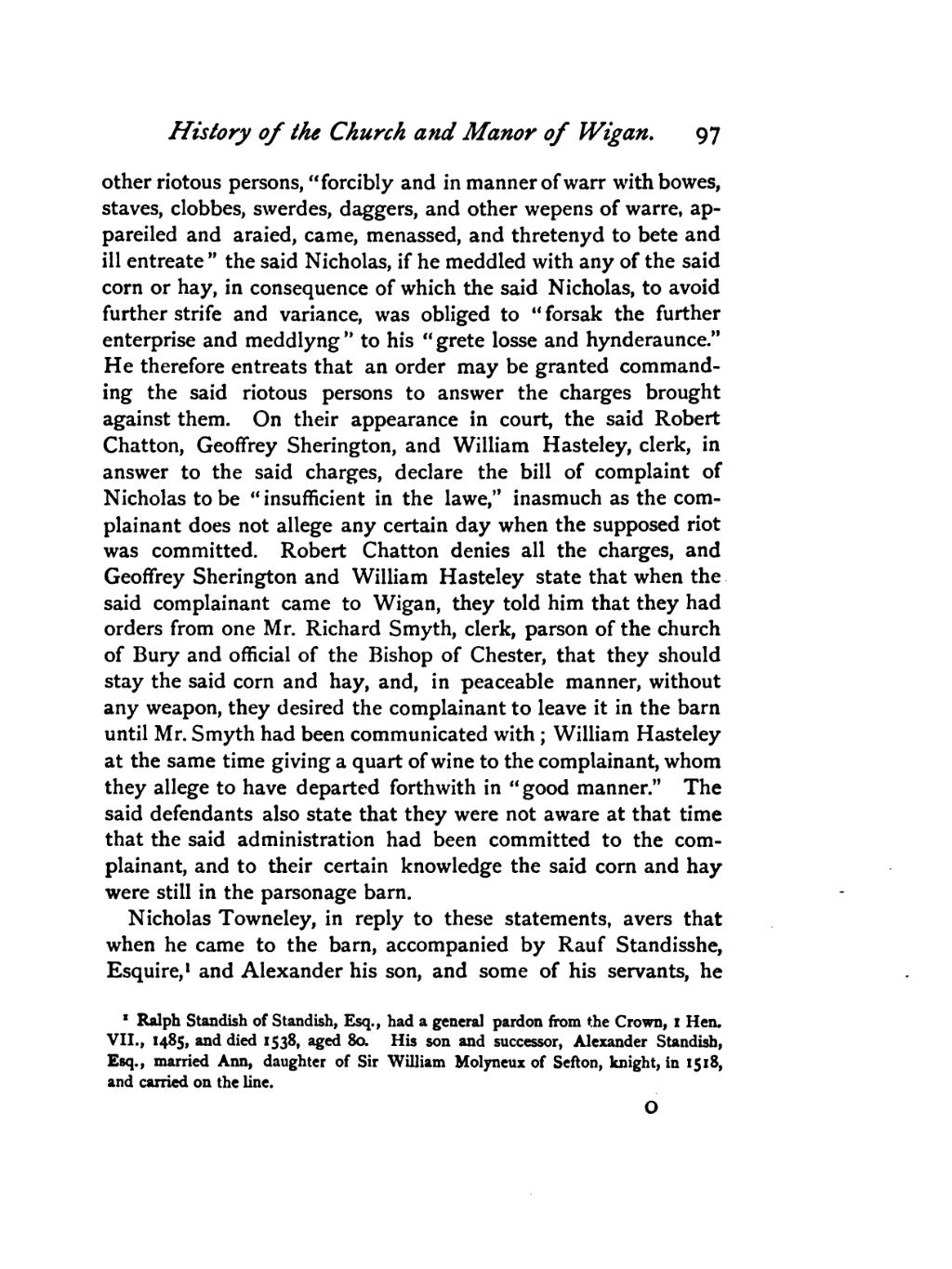other riotous persons, "forcibly and in manner of warr with bowes, staves, clobbes, swerdes, daggers, and other wepens of warre, appareiled and araied, came, menassed, and thretenyd to bete and ill entreate" the said Nicholas, if he meddled with any of the said corn or hay, in consequence of which the said Nicholas, to avoid further strife and variance, was obliged to "forsak the further enterprise and meddlyng" to his "grete losse and hynderaunce." He therefore entreats that an order may be granted commanding the said riotous persons to answer the charges brought against them. On their appearance in court, the said Robert Chatton, Geoffrey Sherington, and William Hasteley, clerk, in answer to the said charges, declare the bill of complaint of Nicholas to be "insufficient in the lawe," inasmuch as the complainant does not allege any certain day when the supposed riot was committed. Robert Chatton denies all the charges, and Geoffrey Sherington and William Hasteley state that when the said complainant came to Wigan, they told him that they had orders from one Mr. Richard Smyth, clerk, parson of the church of Bury and official of the Bishop of Chester, that they should stay the said corn and hay, and, in peaceable manner, without any weapon, they desired the complainant to leave it in the barn until Mr. Smyth had been communicated with; William Hasteley at the same time giving a quart of wine to the complainant, whom they allege to have departed forthwith in "good manner." The said defendants also state that they were not aware at that time that the said administration had been committed to the complainant, and to their certain knowledge the said corn and hay were still in the parsonage barn.
Nicholas Towneley, in reply to these statements, avers that when he came to the barn, accompanied by Rauf Standisshe, Esquire,[1] and Alexander his son, and some of his servants, he
- ↑ Ralph Standish of Standish, Esq., had a general pardon from the Crown, I Hen. VII., 1485, and died 1538, aged 80. His son and successor, Alexander Standish, Esq., married Ann, daughter of Sir William Molyneux of Sefton, knight, in 1518, and carried on the line.
